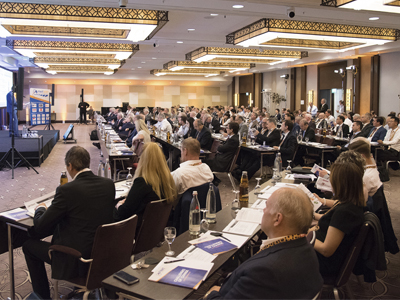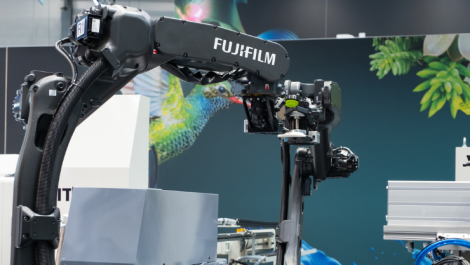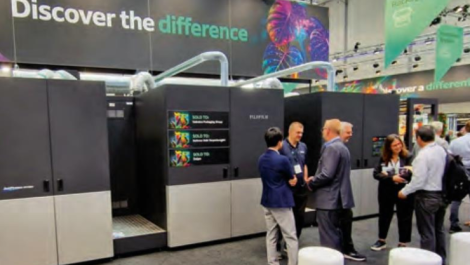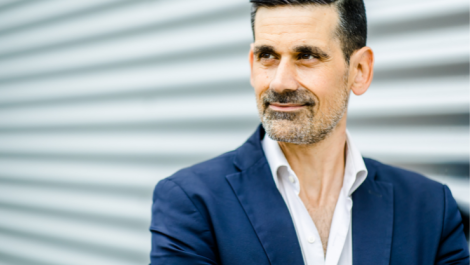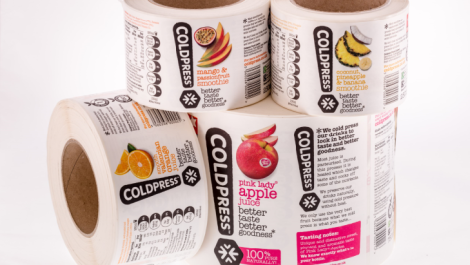The well-attended European Label Forum took place in Berlin
The second annual FINAT European Label Forum (ELF) took place on 7-9 June. Gathering converter and supplier members, the change brought by digital – both in the wider context and as a print technology – was the major theme. Neel Madsen reports from Berlin.
Change and digitalisation were discussed in many of the engaging presentations at ELF 2017. Change was also on the cards in terms of the format of some of the sessions, while a change in presidency took place on the final day.
A new approach to getting the participants involved was guided workshops. FINAT had commissioned De Ruijter Strategy to conduct a scenario planning project where small groups discussed the imaginary case of Enrico, a second-generation owner of label company FinatCo. The groups had to develop the story of this company for the next five years, based on four possible scenarios taking into consideration fragmentation/consolidation of the market, technology disruption and labour shortage.
Make a change
The “other” Michael Jackson, who has worked with the likes of Microsoft, Virgin, HP and Qatar Airways, is an expert on change and helping organisations navigating the challenges that it brings. He favours project-driven thinking, teamwork and finding a common purpose for all employees. ‘Simplify, smarten up and specialise,’ was his advice.
‘Change is boiling right now,’ said Mr Jackson in reference to the famous frog in a pot experiment, urging the participants to jump before the water gets too hot. ‘Think about the change in your own industry and find out what sets you apart,’ he said. ‘Be your industry’s Uber. Simply continuing to do more of the same will lead to your demise. If you are not disrupting your industry, you’re rapidly becoming outdated and irrelevant.’
Branding your company in the age of the digital generation was the topic for Jan Denys of analytics company, Randstad Group. He shared 10 golden insights saying that Industry 4.0 is bringing new forms of working and we all have to learn new skills. Talent matters more and more.
Stephan Lechel, partner Porsche Consulting, discussed the fourth industrial revolution and what it means for manufacturing processes. The consultancy company has done a survey of 500 businesses looking at the challenges of digitisation. Interestingly, 75% of those surveyed realised that without digitisation of processes, they would lose market share, however, only 35% are actively working on a strategy to meet this demand.
In terms of innovation, Mr Lechel explained that cycles are getting much shorter and that consumers want variation and individualisation. New business models are more successful as is modular product development. He said, ‘Don’t wait until you know something works 100% to go for it, try at 60%. Think big, start small and scale up what works.’ He also encouraged the attendees to leverage their potential, change and/or strengthen their business activities to achieve strong customer loyalty and to automate repetitive processes.
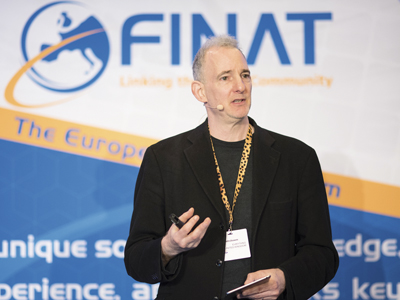
Andy Hobsbawn (Evrythng) believes products are underused assets in terms of connectivity
The Internet of Things (IoT) is the focus for Andy Hobsbawn’s company Evrythng, which works with the likes of WestRock, Avery Dennison and Crown. He spoke about how smart products are transforming brand relationships, claiming, ‘The age of smart products is happening now, but most products are still underused assets.’ He predicts that 99% of all products will become part of a connected network as digital assets, or as Evrythng calls it an Active Digital Identity (ADI). This offers huge amounts of data that can be used in a wide variety of ways.
Digitally activated products can create supply chain efficiencies by helping reduce inventory, eliminate stock redundancy, improve logistics, lower product recalls and reduce the counterfeit market. Consumer patterns can be traced and full cradle-to-grave history of each product recorded to improve sustainability.
‘The digitisation of products is a central pillar in the digital transformation strategy of every manufacturer and retailer,’ said Mr Hobsbawn. His advice to label printers was to see if they can help their customers solving pinpoints with technology making more money in the process.
Digital printing
Corey Reardon, principal and CEO of AWA Alexander Watson Associates, gave an overview of the market for direct digital printing onto packaging containers and the drivers for growth and substitution, based on a report released in 2016. He said, ‘Disruption is not typically a word we use in the label industry, but direct digital printing could be considered a disruption. Time will tell whether it is.’
Printing directly onto moulded containers is set to grow over the next five years as the format improves. Removing the need for a separate form of product decoration could significantly reduce costs and improve sustainability, said Mr Reardon. Barriers to entry currently include high cost of ink, slow line speeds, high cost of capital equipment and no metallic inks, amongst others.
Jennifer Dochstader and David Walsh, founding partners at LPC, presented the results of a study commissioned by FINAT into the current and future development of digital versus conventional printing in Europe.
The presentation brought together qualitative and quantitative research carried out throughout the European region. The aim was to give the association’s members a deeper understanding of the current perceptions of brand owners and packaging buyers in relation to digital label printing, and the expectations of these influencers as technology advances and their own label-sourcing requirements change and evolve.
United Europe
The closing keynote session on the final day came from Joschka Fischer, the former German minister of foreign affairs and vice chancellor, who today runs a consultancy firm and serves on a number of boards, including the executive board of the European Council on foreign relations.
Speaking about the future of the European political and economic landscape, Mr Fischer had plenty to get his teeth into as his presentation fell on the morning when the UK general election result came in. Referring to the chaotic situation in the UK and also the election of Donald Trump in the US, he said, ‘We are talking about an annus horribilis. The UK result is a disaster for the EU negotiations. There is no clear direction and we have a messy situation. The UK and the US have de facto withdrawn their support to the transatlantic committee. Unfortunately this is reality, not a script from Monty Python!’ He emphasised the importance of Continental Europe staying together and said that the French presidential election was one positive. Security will now be top of the agenda as Europe moves forward to stabilise itself and becomes stronger.
In a time when the UK’s relationship with Europe is fragile, it is reassuring to see associations like FINAT working hard to maintain and forge relationships across borders. As incoming president Chris Ellison said, ‘FINAT plays a vital role in providing a stable, trustworthy platform to collaborate and do business in a period of political uncertainty.’
Next president
During a ceremony at the members’ dinner, Thomas Hagmaier presented the president’s chain to Chris Ellison, owner of OPM Group, in the UK. Mr Ellison has served as vice-president over the past two years and now takes over the top job of the organisation. He said, ‘I’m deeply honoured to accept the offer to serve as your 20th president.’
He continued, ‘As I take over the presidency, I feel energised and positive about the agenda. The key element in our agenda is to further engage interest and commitment of a broader, stronger FINAT.’ He highlighted FINAT’s five star programme, which is dedicated to getting more members, particularly young people, and stated that he would like to see more converters join and encouraged existing members to get more involved in activities.
The FINAT Label Awards were also handed out in Berlin. There were five groups of categories covering various applications and print technologies. Winner of the Marketing/End Uses group and Best in Show was Royston Labels for the King’s Cross label, which the judges described as ‘outstanding’. The label was printed in UV flexo, six colours on a metallic substrate with both matt and gloss varnish. It depicts a leaf in the shape of southwest London with The River Thames highlighted.
Read the full July issue here

